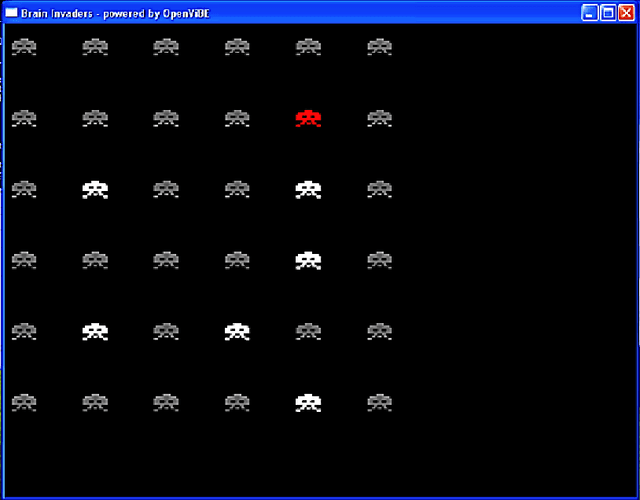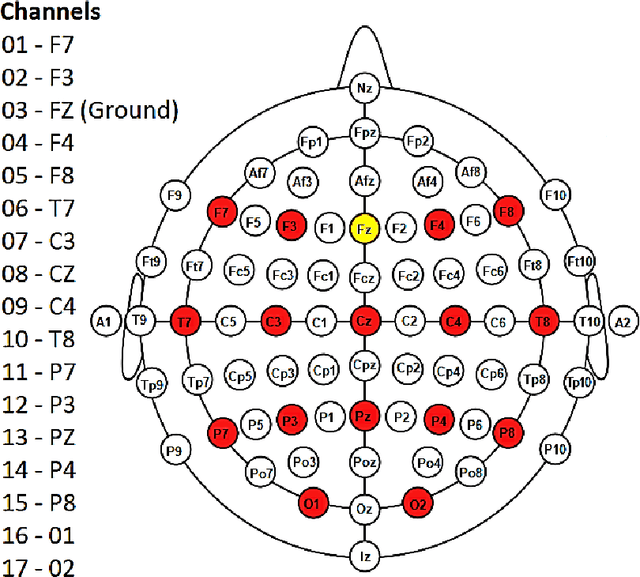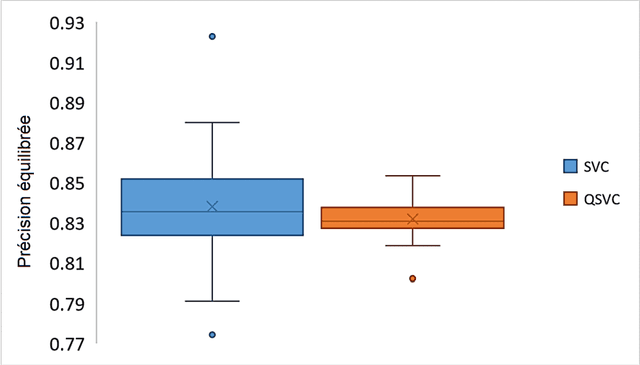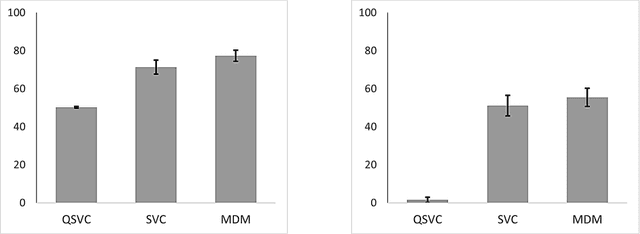Grégoire Cattan
GIPSA-VIBS, GIPSA-lab
The Riemannian Means Field Classifier for EEG-Based BCI Data
Apr 24, 2025Abstract:A substantial amount of research has demonstrated the robustness and accuracy of the Riemannian minimum distance to mean (MDM) classifier for all kinds of EEG-based brain--computer interfaces (BCIs). This classifier is simple, fully deterministic, robust to noise, computationally efficient, and prone to transfer learning. Its training is very simple, requiring just the computation of a geometric mean of a symmetric positive-definite (SPD) matrix per class. We propose an improvement of the MDM involving a number of power means of SPD matrices instead of the sole geometric mean. By the analysis of 20 public databases, 10 for the motor-imagery BCI paradigm and 10 for the P300 BCI paradigm, comprising 587 individuals in total, we show that the proposed classifier clearly outperforms the MDM, approaching the state-of-the art in terms of performance while retaining the simplicity and the deterministic behavior. In order to promote reproducible research, our code will be released as open source.
Towards an architectural framework for intelligent virtual agents using probabilistic programming
Jul 20, 2023



Abstract:We present a new framework called KorraAI for conceiving and building embodied conversational agents (ECAs). Our framework models ECAs' behavior considering contextual information, for example, about environment and interaction time, and uncertain information provided by the human interaction partner. Moreover, agents built with KorraAI can show proactive behavior, as they can initiate interactions with human partners. For these purposes, KorraAI exploits probabilistic programming. Probabilistic models in KorraAI are used to model its behavior and interactions with the user. They enable adaptation to the user's preferences and a certain degree of indeterminism in the ECAs to achieve more natural behavior. Human-like internal states, such as moods, preferences, and emotions (e.g., surprise), can be modeled in KorraAI with distributions and Bayesian networks. These models can evolve over time, even without interaction with the user. ECA models are implemented as plugins and share a common interface. This enables ECA designers to focus more on the character they are modeling and less on the technical details, as well as to store and exchange ECA models. Several applications of KorraAI ECAs are possible, such as virtual sales agents, customer service agents, virtual companions, entertainers, or tutors.
First steps towards quantum machine learning applied to the classification of event-related potentials
Feb 06, 2023



Abstract:Low information transfer rate is a major bottleneck for brain-computer interfaces based on non-invasive electroencephalography (EEG) for clinical applications. This led to the development of more robust and accurate classifiers. In this study, we investigate the performance of quantum-enhanced support vector classifier (QSVC). Training (predicting) balanced accuracy of QSVC was 83.17 (50.25) %. This result shows that the classifier was able to learn from EEG data, but that more research is required to obtain higher predicting accuracy. This could be achieved by a better configuration of the classifier, such as increasing the number of shots.
 Add to Chrome
Add to Chrome Add to Firefox
Add to Firefox Add to Edge
Add to Edge